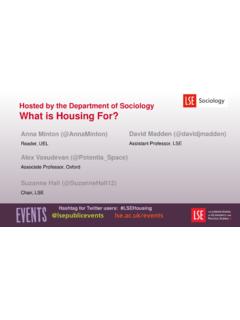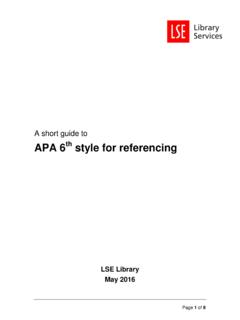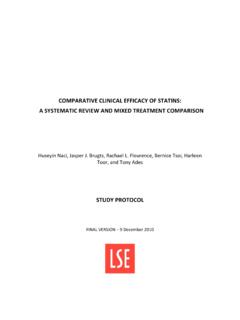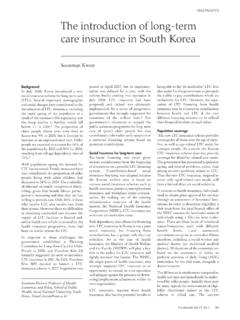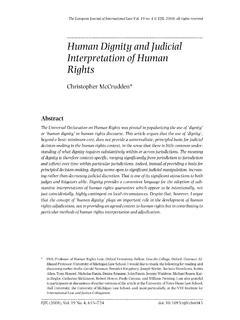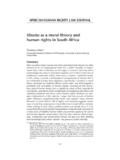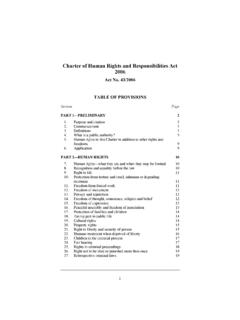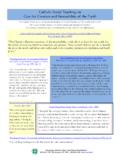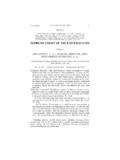Transcription of Human rights equality and discrimination - LSE …
1 Page 1 of 31 equality , dignity and discrimination under Human rights Law; selected cases Francesca Klug and Helen Wildbore, Centre for the Study of Human rights , LSE INTRODUCTION Background The pursuit of equality is the driving force behind most post-war Human rights treaties and instruments. It is the hallmark of what has been described as second wave rights ; the first wave being famously characterised by the pursuit of life, liberty and As Rabinder Singh QC has noted, the idea that all Human beings are equal is a very recent notion. Article 1 of the Universal Declaration of Human rights (UDHR, 1948) proudly proclaims that all Human beings are born free and equal in dignity and rights . Not only born free, as Rousseau had , but equal. And not, as the American Declaration of Independence had asserted, only (white) men but all Human beings.
2 2 [Bracketed words added]. In fact the first two articles of the UDHR are entirely devoted to the principle of equality . The second Article provides the original articulation of the modern formulation of anti- discrimination . It is effectively reproduced in the 1950 European Convention on Human rights (ECHR) and has inserted itself, in a modified form, into domestic anti- discrimination In its day, this was a major step forward, pushing the notion of equality from the Enlightenment principle that all laws must be applied equally ( equality before the law) to the assertion that states must use the law to root out discrimination . However discrimination , as such, is only one aspect of the Human rights concept of equality . As Rabinder Singh also commented in the same article, in many ways the most important word in the European Convention on Human rights is everyone.
3 Most of the substantive articles of the Convention begin with the word everyone The real challenge is to take that word seriously and accept that it means what it says. On this reading, one of the major purposes of Human rights law, nationally and internationally, is to achieve greater equality . Or as Professor Conor Gearty has framed it, Human rights help to turn the fact of our equality into the basis of an ethical theory as to how we should act. We are equal; therefore we have a right to equality of respect; therefore we each deserve a chance to do the best we can with our lives, according to our own lights. 4 1 Values for a Godless Age, Francesca Klug, Penguin, 2000, chapters 3-5.
4 2 Rabinder Singh, equality : the neglected virtue , [2004] 2 EHRLR 141. 3 The enjoyment of the rights and freedoms set forth in this Convention shall be secured without discrimination on any ground, such as sex, race, colour, language, religion, political or other opinion, national or social origin, association with a national minority, property, birth or other status. ECHR, Article 14. 4 Conor Gearty, Understanding equality : the need for discrimination , speech at the discrimination Law Association, 13 December 2004. Page 2 of 31 In other words, in Human rights thinking, freedom from discrimination is a necessary but far from sufficient means of achieving equality . equality is what we are born with, and the purpose of Human rights laws is to ensure that we are in practice all able to live the lives we choose to live and participate in the community in which we live.
5 There is, therefore, a substantive right to equality in certain spheres in Human rights law. If everyone is to really mean everyone, then laws must be fashioned to take account of difference as well as similarity and the state must intervene to prevent individuals from interfering with the rights of others. The UDHR affirmed that economic, social and cultural rights are as important as civil and political rights in achieving the goal of greater equality . But even in the ECHR, equality is a defining principle of each substantive civil and political right: each one of us is entitled to express a view however much others may disagree with it; to have a religious belief of our choice or to have none; to organise our private life as we see fit etc.
6 And as the state is required not only to refrain from breaching our rights , but to secure [them] to everyone within their jurisdiction ,5 the European Court of Human rights has established that governments have positive obligations , where appropriate, to provide the necessary resources to ensure that our rights are practical and effective not theoretical or illusory .6 Finally, it should be noted, that the value Human rights law puts on equality is not entirely neutral. Everyone being treated equally badly is not a Human rights concept. It is not sufficient to ensure that no-one is being discriminated against if the consequence is that all groups are treated with an equal lack of respect or lack of opportunity to participate in social and civic life.
7 If equality is the main goal of second wave Human rights , dignity is its foundational value; as the first Article of the UDHR Lord Walker has stated in a case concerning age discrimination that in the field of Human rights , discrimination is regarded as particularly objectionable because it disregards fundamental notions of Human dignity and equality before the law (our emphasis). 8 A public authority will not comply with the Human rights Act, therefore, if the services it provides, whilst non-discriminatory, do not demonstrably respect the worth and dignity of every individual. As Justice Munby notably said in a recent case in which the DRC intervened: True it is that the phrase [ Human dignity ] is not used in the Convention but it is surely immanent in Article 8, indeed in almost every one of the Convention s provisions.
8 The recognition and protection of Human dignity is one of the core values in truth, the core value of our .9 5 ECHR, Article 1. 6 Artico v Italy (1981) 3 EHRR 1 para 33. 7 See para 2 above. 8 R (Carson and Reynolds) v Secretary of State for Work and Pensions [2005] UKHL 37, para 49. 9 Munby J, R (A and B) v (1) East Sussex County Council (2) The Disability rights Commission (Interested Party) [2003] EWHC 167 (Admin), para 86. Page 3 of 31 Cases Attached is a selective summary of a few notable Human rights cases, categorised according to the 6 equality strands to be given specific protection by the CEHR. They were selected in order to clarify further the Human rights principles of equality and discrimination . Not all of the cases were successful for the applicants; this often depends on the facts.
9 But we have deliberately selected cases which have advanced or clarified the Human rights principles of equality and discrimination ; principles that CEHR will be under a duty to promote and monitor and encourage compliance with. Most of the cases are domestic Human rights Act cases but some are from the European Court of Human rights . The European Court has been much better at recognising the principle of equality in substantive rights cases than through the application of Article 14 which prohibits discrimination directly. Domestically, however, there is a growing case law which recognises both. The similarities between Human rights law and anti- discrimination law principles should be fairly self evident. The differences are less Human rights case law has been slow to recognise the principle of indirect discrimination11 but there is growing jurisprudence on the need to recognise and cater for difference through specially tailored provision, which can amount to the same outcome in practice.
10 The recognition of positive obligations on government and public authorities to ensure fair and equal treatment, is much stronger in Human rights law than in domestic anti- discrimination law. The following introductory points will hopefully aid comprehension of the principles raised in each of the attached cases (they are aligned to the relevant cases which are listed in brackets at the end of each point). We have tried to use non-technical terms where possible and to provide a policy orientated, non-legal analysis where we can. The purpose is to begin to explore how Human rights principles might be used to intersect with the anti- discrimination legislation that CEHR will be empowered to enforce. General Human rights and equality Principles 1.


